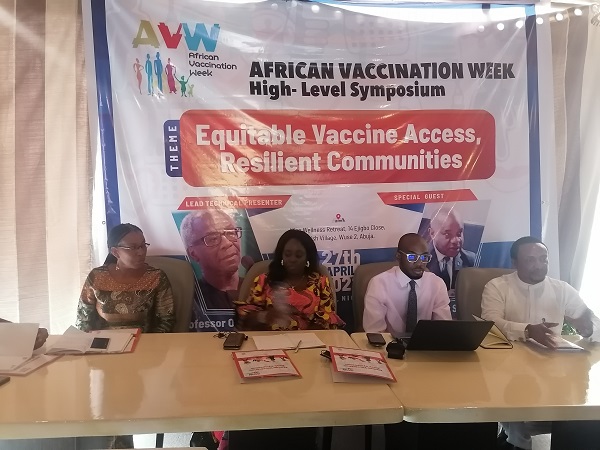
A coalition of health-focused civil society organisations have demanded the urgent implementation of the Immunisation Agenda 2030 (IA2030).
The Immunisation Agenda 2030 is an ambitious global strategy that aims to reduce by 50 per cent the number of children receiving zero vaccine doses and achieve the introduction of 500 underutilised vaccines in low and middle-income countries from 2020 to 2030, amongst other strategies.
The IA2030 goals and framework aim to accelerate movement towards the realisation of Sustainable Development Goals (SDGs) while monitoring primary health care functions and other health-related goals.
The director-general, Africa Institute of Public Health, Dr. Francis Ohaniedo, speaking on behalf of other CSOs in the immunisation space noted that despite the major gains made in the area of immunisation and access to vaccines in the last two decades, Nigeria is still grappling with challenges in the local production of vaccines and coverage.
Speaking at a press briefing at the end of a two-day Africa Vaccination Week Symposium organised by the West Africa Institute of Public Health (WAIPH), with the support of the Partnership for Advocacy in Child and Family Health and Scale, the Bill & Melinda Gates Foundation, Reinvestment Health Social and Accountability Project in collaboration with other partners, Ohaniedo said local vaccine production will improve access to vaccines.
“Local production of vaccines will ensure equitable access to vaccines. The hoarding of COVID-19 vaccines created problems for countries that do not produce theirs. There was no equitable distribution of COVID-19 vaccines.
“If vaccines are produced in Nigeria, the onus lies on the states to ensure they procure for their states, while the primary health system needs to function optimally to ensure there is equitable distribution,” Ohaniedo said.
He further said a research hub is already being set up, as a regulatory framework is in place but it is hoped that local vaccine production will start up without further delays.
In his address, program advisor, Centre for Accountability and Inclusive Development, Jonathan Isah, reiterated that vaccines have remained very potent in ensuring longevity and better lives because the world now has vaccines that can help prevent over twenty life-threatening diseases.
“Vaccines have helped in the elimination of polio, maternal and neo-natal tetanus and vaccines are making a huge impact on diseases like cervical cancer, hepatitis and Ebola.
“The IA2030 is a milestone that Nigeria needs to run along with to achieve the sustainable development goals.
“If IA2030 is implemented on schedule, 20 million African lives will be saved,” Isah said.
A virologist, Prof. Oyewale Tomori, stressed that Nigeria is not where it should be as regards IA2030, which is 8 years from now.
He advised that is important to ensure that no routine immunisation plan suffers while running COVID-19 vaccination.
Other partners at the meeting agreed that the local production of vaccines will serve the public good due to the country’s population, hence the need for government to create an enabling environment for local vaccine production to thrive.

